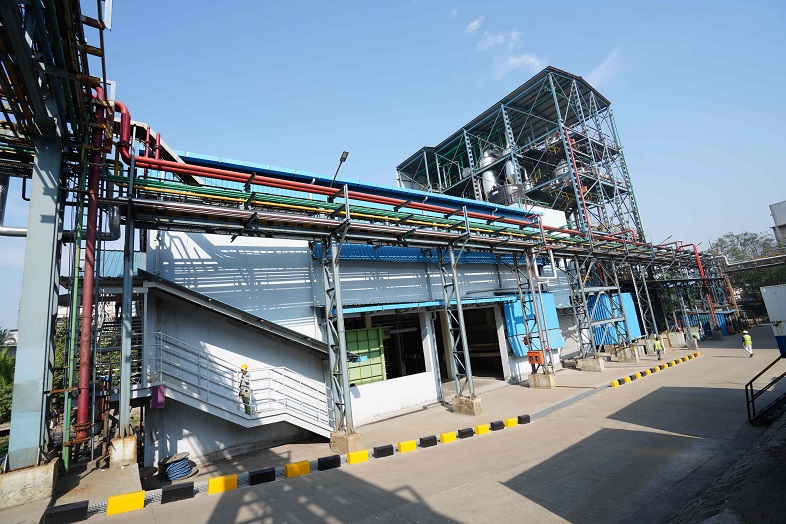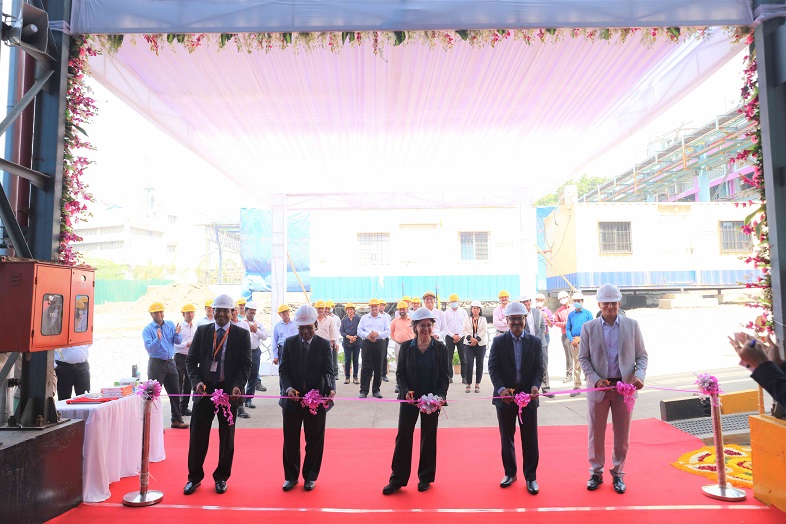Essen/Dombivli. Evonik Catalysts has opened a new Zero Liquid Discharge (ZLD) plant at its facility in Dombivli, India. The new plant reduces the amount of fresh water required for production processes and turns material that was previously considered waste into saleable products.
ZLD purifies and recycles wastewater at the end of an industrial process, leaving little to no effluent remaining when it is completed. This means not only more efficient water use, but also a significant reduction in waste liquid.
“Environmental excellence has always been a top priority for Evonik in India, and the ZLD plant at our catalysts site is a centerpiece in Evonik’s efforts to minimize its production-associated ecological footprint,” said Sanjeev Taneja, Senior Vice President and General Manager, Catalysts business line, at the inauguration of the plant.

“The efficient reuse of process water, and products extracted from it, is in line with our circular economy principles, and a key contribution to the sustainability targets of Evonik and our customers.”
Evonik is developing site-specific action plans as part of its global water management system. One focus is on sites in regions that could be affected by water scarcity. It also strives for the most efficient use of water.
The main ambition with the Dombivli ZLD plant is to improve the treatment of process water. It goes through a multi-stage process and then the byproducts go through further processing. An estimated 600 m3 of wastewater – the equivalent of between 25 and 30 tankers – enters the ZLD plant every day and the plant is expected to recirculate around 55 percent of that – approximately 300-350 m3 – for process reuse and the balance water for re-use as cooling tower make up thus reducing Evonik water use requirements and thereby reducing Evonik’s dependence on municipal water supplies.
The requirement for fresh water will be reduced by 65 per cent after stable operation of zero liquid discharge and the company is targeting further reductions through process optimization.
In addition, processing leads to the production of 15-20 metric tons of sodium sulphate and certain mixed salts which can be resold as a commercial product.
“At Evonik, we see responsibility and long-term business success as two sides of the same coin,” says Vinod Paremal, Regional President, Evonik India Subcontinent. “Sustainability is a central element in our purpose ‘Leading Beyond Chemistry’, and we look to provide innovative solutions that help to make everyone’s lives more sustainable, healthier, and more comfortable.
“Sustainability is important to our customers and the end consumer and has long been a growth driver in many of our businesses. This new ZLD initiative carries forward that sustainable outlook.”
The ZLD plant is set-up on a ‘BOOT’ Model between Evonik and Remondis, with the latter responsible for building, owning, operating, maintaining and transferring the ZLD plants to Evonik.


